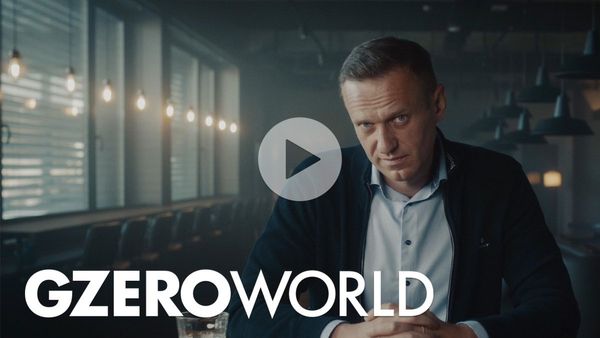“A film is a weapon on time delay” — an interview with “Navalny” director Daniel Roher
Vladimir Putin may be busy waging war on Ukraine and threatening NATO with nuclear strikes, but at home in Russia, what scares him most is a man currently languishing in a tiny jail cell.
Opposition leader Alexei Navalny is Russia’s most prominent dissident. In August 2020, someone tried to poison him to death. He was flown abroad to Germany for treatment and then, unfathomably, returned to Russia, where he was promptly arrested and sentenced to a lengthy prison term.
The Oscar-nominated documentary “Navalny” follows him and his team during those crucial months in Germany, as they uncover details of the assassination plot, pulling strings that reach into the highest levels of the Kremlin. It plays, remarkably, as a thriller, a black comedy, and an intimate family portrait.
Ahead of the Oscars next Sunday, I sat down with director Daniel Roher to learn more about how “Navalny” got made, the geopolitical power of cinema, and what he hopes Vladimir Putin will do if he ever sees the film.
You can read the whole interview or watch a video of it here, but just a few highlights:
On how he convinced a social media master like Navalny that a conventional documentary was worthwhile:
“A YouTube video is made and released and it exists and is gone and forgotten in two or three weeks. But a film can be a weapon that's on a time delay. People will watch this film and think about Navalny and his family not for the next day or week, but for the rest of their lives.”
On whether he felt he might be getting spun by Navalny and his team:
“It wasn't that I was worried about it. I was awareof it every single moment. Here I am making a film about a politician whose great gift is his mastery of the media. And it's actually an element that's woven into the fabric of the film. Who's directing whom?”
On Navany’s past ties to hardcore nationalists and neo-Nazis:
“I asked him about this and he said, basically, ‘I'm trying to build a broad-based coalition. I'm trying to take the liberals in Moscow and whoever else opposes the regime. If these nationalist guys oppose Putin, then we're on the same team right now. When it comes to figuring out the public policy of how to govern a free Russia, that's a different discussion. And I would never associate with these guys.’ It's basically “the enemy of my enemy is my friend.” That's the political calculus he's making. And I can simultaneously understand it and be deeply uncomfortable with it.
On what he hopes Putin would do if he sees the film:
[This one is too good to give away. Just click through to the whole interview here!]
– Alex Kliment

